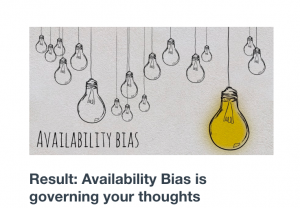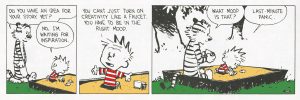Critical Thinking Classes – The Journey So Far…
Bismillahir Rahmanir Rahim & Namashkar,
The critical thinking classes seemed to be an extension of what we have learnt in 7 habits, love, integrity and other life classes. We were introduced with the way our brain responds to situations. It tries to respond as quickly as possible depending upon the past knowledge and experiences. Daniel Kahneman, the author of the book “Thinking Fast & Slow”, says that there are two systems working in our brain – Fast and Slow. For ex., if you are asked questions like What’s your name? or 2+1=?, etc., the brain would immediately respond as it has past knowledge and / or experience. But, if you are asked what is 31 x 21, your brain will take time to respond. Depending on the situation, we should use these systems to our advantage. In case of emergencies, one cannot afford to use the slow thinking system because there is not enough time to do that. Also, one has to evaluate options available keeping in mind the consequences. That’s referred as critical thinking. There are situations where we should use the slow system like buying something, relocating, relationship, etc. Our brain has a tendency to take impulsive choices and hence as Stephen Covey says, we need to take a pause, before we respond. We also carry in our heads something called cognitive biases which influences our choices / response to situations or events.
During the session of getting to know about different cognitive biases, I identified one of the cognitive biases I had (Sorry forgot the name!) and still have and I am working to overcome it. Whenever I find academically good students indisciplined, I lack the will to give them a consequence. So, that’s because my brain has good impression about those students and hence it makes it difficult for me to take the right decision of giving them a consequence and be unbiased. After I took a quiz shared by Mariyam mam, I also found that I have “Negativity Bias”, though I agree partially and not 100%. Negativity bias is more sensitivity towards negative or unpleasant things even when there is equal amount of positive things available. I agree that at times, I would think more of negative once I have had bad experience with a situation or person. It’s work in progress to overcome these biases or minimise its impact on the choices I make in future.
Looking forward to learn more in upcoming CT sessions
Special Thanks to our facilitators – Ms. Shezin Singaporia & Ms. Mariyam Baxamusa
Khuda Hafiz & Namaste!
– Nazim Pirani


